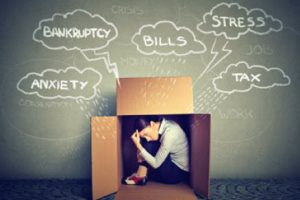Using Bankruptcy To Recover From COVID-19

2020 coronavirus lockdowns triggered the biggest economic slowdown since the Great Depression. Unemployment reached almost unheard-of levels and business activity slowed to a trickle. A few banks, landlords, and other creditors offered some relief. But for the most part, moneylenders demanded on-time payments as if nothing had happened. Coronavirus lockdowns are now a thing of the past. But many families are still dealing with the financial pain these restrictions caused.
If your family is in this group, a Chicago bankruptcy lawyer can show you how to get a fresh financial start. During the darkest days of the pandemic, many families had to over-rely on credit cards. Chapter 7 bankruptcy quickly eliminates these and other unsecured debts. Other families fell behind on mortgage payments and other secured debts. Chapter 13 gives families up to five years to catch up on these payments on their own terms.
Automatic Stay
The protection of Section 362 of the Bankruptcy Code is probably the most significant benefit of bankruptcy. As long as the case is active, creditors cannot take any adverse actions against debtors, such as:
- Creditor lawsuits,
- Repossession,
- Wage garnishment,
- Foreclosure,
- Creditor harassment, and
- Eviction.
Civil court judges have the power to stop these things. But they only exercise this power if the debtor proves fraud, negligence, or something similar. It’s very difficult to prove such allegations. But the Automatic Stay is, well, automatic, It takes effect as soon as debtors file their voluntary petitions, at least in most cases.
Usually, the automatic stay remains in effect as debtors repay their secured and other obligations. So, moneylenders cannot pressure debtors to repay their debts faster or on a different schedule. The debtor controls the repayment terms.
Asset Protection
Bankruptcy doesn’t just stop creditors from seizing your assets, even if you are way behind on payments because of coronavirus. Bankruptcy also prevents the trustee (person who oversees a bankruptcy for a judge) from liquidating assets like your:
- House,
- Motor vehicle,
- Retirement accounts,
- Government benefits, and
- Personal property.
A Chicago bankruptcy lawyer helps you maximize these exemptions by properly valuing your assets. Assume Trisha has a small boat. The boat is not an exempt asset. But it’s only worth about $500 and it needs about $200 of work. Most likely, a trustee sale would not fetch enough money to benefit creditors. So, the sale is illegal under state law.
Debt Discharge
Finally, as mentioned above, bankruptcy discharges most unsecured debts. Credit card interest rates usually exceed 18 percent. So, unpaid debt continues piling up, even if a family makes the minimum payments on time. Imagine what your family can do with the extra $200 or so that you spend on credit card bills every month.
Other unsecured debts include payday loans and medical bills. Payday loans have even higher interest rates than credit cards. Medical bills are selectively dischargeable in bankruptcy. The debtor chooses which ones to let go and which ones to keep paying. So, if a family wants to stay in a doctor’s good graces, the family can reaffirm that medical debt. Bankruptcy is also about having the power to make your own financial choices.
Rely on Dedicated Cook County Lawyers
No matter what kind of financial problem you are having, bankruptcy could be a way out. For a free consultation with an experienced bankruptcy attorney in Chicago, contact the Bentz Holguin Law Firm, LLC. We routinely handle matters in Illinois and Indiana.
Resource:
cbpp.org/research/poverty-and-inequality/tracking-the-covid-19-economys-effects-on-food-housing-and


